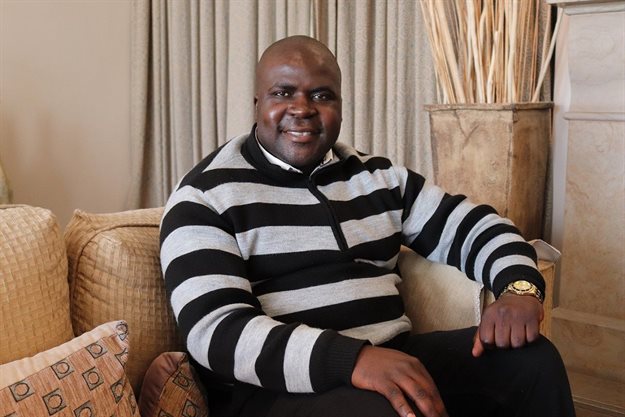Why the youth need to be involved in grassroots service provision

The next 10 years in South Africa’s development are crucial. We have to roll out massive skills transfer programmes, not only focusing on hard skills, but also on soft skills, to ensure that our young people benefit from economic growth and opportunities being created. The country is keeping a social time bomb with the majority of the youth unemployed, with little or no economic participation. The recent wave of violence in Johannesburg is evidence of this. If we don’t do something about the youth today, then time is not on our side.
The population in South Africa is generally young, and without opportunities and jobs. The majority of the youth lack the right education in critical thinking skills, problem solving and innovation. We need to bring them on board as partners in development and to ensure service delivery. Young people should not be seen as a societal problem, but as a critical mass of positive change-drivers in communities.
Research has shown that social youth networks form an integral part of a viable economic development strategy. Our recent survey of the Activate! Network, released mid-2019, demonstrated that the concept of social networks among the youth has managed to positively impact South African communities, particularly at the local level.
Catalysts
The youth can be catalysts for social change in their communities if their voices are integrated in public decision-making nationwide; instead of having an entire generation labelled as ‘victims’ of a broken system, they should be considered key stakeholders as much as business and civil society are to government. Youth development programmes need to be strategic in their efforts to collaborate with the youth and drive change.
Policies in South Africa should be youth-centric and should encourage youth participation in terms of service provision, service monitoring, and in-service evaluation. This is because the youth are embedded within their communities on the ground so they need to take centre stage in providing services to these communities, and in ensuring that these services adhere to standards which are acceptable.
If you look at the Activate! Network, it has a lot of young people (known as ‘Activators’), who are engaging in pro-social and economic activities which help their communities directly. But their greatest challenge is due to funding - they do not have access to funding. We have seen deliberate efforts by provincial governments, particularly Mpumalanga and the Western Cape, who have tried to partner some of our youth activators in providing vital services to their communities. A case in point is a community outside Mbombela (Nelspruit), where government, through the Department of Social Development, has partnered with a group of seven activators who are in youth development and coaching. These young people have been financed and also their centre has been resourced so they have a place from which to work. The community is benefiting from this kind of partnership.
Partnerships
Instead of government shying away and looking for big organisations or companies to partner with for service delivery, they ought to take these young people into their confidence and partner with them. Apart from that, government also has to have deliberate engagement platforms for young people. We know that young people do not access conventional systems for participation with government policy on local, district or provincial level. Within civil society too, there is no need to replicate efforts on the ground. There are already a number of youth in our network, for example, running HIV awareness programmes, championing access to sexual and reproductive education and knowledge, so other NGOs who have the resources and skills should partner with these youth and build their capacities.
These young people have potential, but that potential needs to be nurtured, upskilled, and resourced so that they create the right kind of impact in society. In development work we do not have the luxury to wait until everything is settled, but rather we need to start helping people now and improve later.
Young people need to be taken into our confidence, they need to understand that their voices matter, that their opinions are also critical. Young people in South Africa are interested in community work, they are conscientised to offer something to their communities, but they lack the resources. Young people do not have the same leverage of networks and connections and resources that adults have. These need to be deliberately infused. These young people are located at the lowest level of communal society, which means they are best suited to deliver services as they understand the needs of their communities where government services are skeletal. They know where government services are required the most, they know what works and what doesn’t work, which is vital.
Shrinking opportunity horizon
Young people in South Africa are not connected, they lack opportunities, and their opportunity horizon is shrinking because of what we have seen over these years: the continuous looting of state resources, corruption on a grand scale, the erosion of ethical leadership at both provincial and national levels of government, the apathy of honest engagement, the lack of deliberate efforts to develop mechanisms for changes.
Those within the Activate! Network whose opportunity horizon has improved through our programmes are starting to engage with other young people, and they are realising that they can engage with government in constructive ways, without being violent and in non-radical ways.
What gives us hope is the percentage of young people running their own initiatives, running social services, giving out to their communities in terms of volunteering. The Activate! Network have generated nearly R31m in value in volunteering hours within the Activate youth network: 68% within our network of volunteers, which is higher than the 6% national average.
These young people are no longer being individualistic, they are already providing services in their communities, reflecting on what leadership is, what community development is, what African leadership is - they are challenging stereotypes, they are revisiting their ideologies so they too can have an impact, so they too can develop their communities and find immediate solutions.

























